- ON THE DECADE
- THE DECADE'S CAMPAIGN
- REPORTING ON PROGRESS
- THE DECADE'S PROGRAMMES
- FOCUS AREAS
-
- Access to sanitation
- Financing water
- Gender and water
- Human right to water
- Integrated Water Resources Management
- Transboundary waters
- Water and cities
- Water and energy
- Water and food security
- Water and sustainable development
- Water and the green economy
- Water cooperation
- Water quality
- Water scarcity
- FOCUS REGIONS
- RESOURCES FOR
- UN e-RESOURCES
Side event. UN-Water: The Road to Rio. Water for Development and Poverty Eradication at the Bonn2011 Nexus Conference
Participants
Facilitator
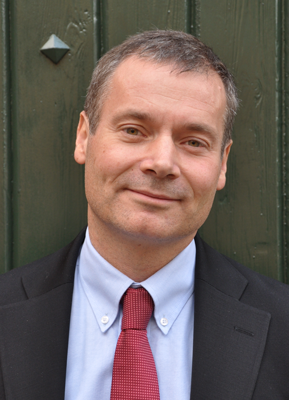 Johan Kuylenstierna. Centre Director, Stockholm Environment Institute (SEI)
Johan Kuylenstierna. Centre Director, Stockholm Environment Institute (SEI)
He holds an adjunct professorship in international water resources issues at the Department of Physical Geography and Quaternary Sciences at the Stockholm University. Johan has previously worked as the Chief Technical Advisor to the Chair of UN-Water, based at FAO in Rome. Before joining the United Nations, he served as Project Director at the Stockholm International Water Institute with the overall responsibility for the World Water Week in Stockholm. He also established the Swedish Water House initiative and served as its first manager. Johan has worked as a consultant for many years with a focus on environmental management, corporate social responsibility (CSR), communication, core-value development, stakeholder participation processes and capacity development. Among other things, he developed and ran negotiation training games, both in Sweden and through international training programmes. He has experience from international policy work through professional positions at the World Meteorological Organization in Geneva and the Division on Sustainable Development (CSD) at the United Nations Headquarters in New York. He focused primarily on water and climate change issues from policy and management perspectives. He worked in close co-operation with governments, international organisations, NGO's, and the academic and business communities. His academic background is in Palaeoclimatology and he has conducted research work, published scientific and popular articles and has thorough experience as a university teacher in various fields related to physical geography, water resources management and environmental studies.
Panelists
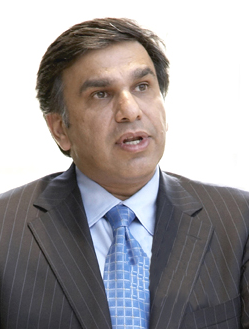 Zafar Adeel. Chair UN-Water, United Nations University (UNU)
Zafar Adeel. Chair UN-Water, United Nations University (UNU)
Mr. Zafar Adeel is Director of the Institute for Water, Environment and Health (UNU-INWEH) at the United Nations University in Hamilton, Canada. Dr Adeel holds a MSc in Environmental Engineering from the Iowa State University and a Ph.D. in Civil and Environmental Engineering from the Carnegie Mellon University. Dr Adeel has experience in a variety of water and environmental issues, including monitoring and control of water pollution, water management in dry areas, solutions to industrial environmental problems, modeling of environmental systems and environmental policy formulation. Dr. Adeel joined UNU in 1998 and moved to UNU-INWEH in 2003. He is currently chair of UN-Water.
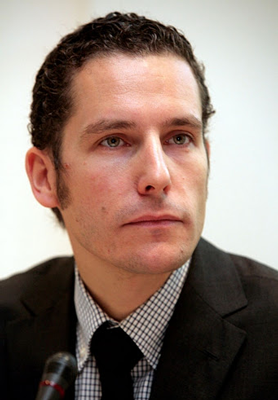 Nicolas Bertrand.United Nations Environment Programme (UNEP)
Nicolas Bertrand.United Nations Environment Programme (UNEP)
Nicolas Bertrand joined the United Nations Environment Programme (UNEP) in February 2006 as Programme Officer in charge of developing the business engagement portfolio of the Secretariat of the Convention on Biological Diversity. Prior to joining UNEP, Nicolas was working on economics and business at the International Union for Conservation of Nature (IUCN), notably on incentive measures for conservation, biodiversity venture capital projects and international policy. At IUCN, he helped establish the first programme on business and biodiversity and, as part of this endeavour, co-authored the IUCN Strategy for business engagement and its companion Operational Guidelines. He was contributing editor of the Business and Biodiversity Handbook for Corporate Action, published by the World Business Council for Sustainable Development (WBCSD) in 2002. He also contributed to the Guide on Biodiversity for the Private Sector published by the International Finance Corporation (IFC) in March 2006. He is currently editor of Business.2010 a newsletter on business and biodiversity published by the Secretariat. Nicolas is a member of the UNEP Finance Initiative Biodiversity and Ecosystem Services workstream and the 2006 and 2008 UNDP Equator Prize Technical Advisory Committee. He was a member of the organizing committee of the High level conference on business and biodiversity organized by Portugal as part of its Presidency of the European Union (November 2007). An Environmental and Natural Resource Economist by training, Nicolas studied in the United Kingdom and France, where he obtained his BSc(Econ) and MSc(Econ) from University College London and an MPhil from the Institute of Forestry, Agricultural and Environmental Engineering.
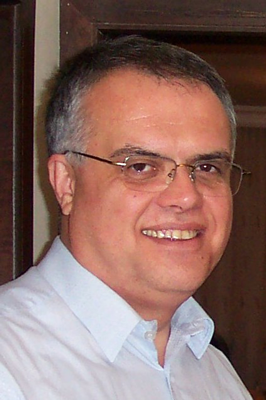 Olcay Ünver. Coordinator, United Nations World Water Assessment Programme (WWAP)
Olcay Ünver. Coordinator, United Nations World Water Assessment Programme (WWAP)
Dr. Ünver is Coordinator of the United Nations World Water Assessment Programme (WWAP) - the flagship programme of UN-Water - and the Director of the UNESCO Programme Office on Global Water Assessment in Perugia, Italy. Housed in UNESCO, WWAP monitors freshwater issues in order to provide recommendations, develops case studies, enhances assessment capacity at a national level and informs the decision-making process. Its primary product, the World Water Development Report (WWDR), is the flagship UN-WATER report and is a periodic, comprehensive review that provides an authoritative picture of the state of the world's freshwater resources. Dr. Ünver holds a Bachelor's and Master's degree in Civil Engineering from the Middle East Technical University, Ankara, Turkey, and a Ph.D. - also in Civil Engineering - from The University of Texas at Austin. Prior to joining UNESCO in 2007, he was with Kent State University, USA where he was a distinguished professor of water resources between 2004 and 2007. Dr Ünver previously served as President of the Southeastern Anatolia Project Regional Development Administration in Turkey as a water resources engineer for the Lower Colorado River Authority in the USA, and as a research scientist at the University of Texas. Dr. Ünver has also undertaken leadership positions in various international organizations, such as Board Member and Treasurer of World Water Council (1995-2003); Vice-President and Secretary-General of International Water Resources Association (2001-2006), and Council Member of International Hydropower Association (1997-2000). In 1999 he was named "a European Visionary" by Time Magazine.
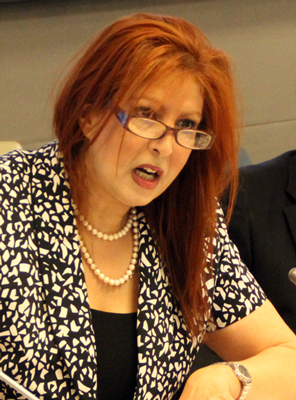 Kenza Robinson. Secretary UN-Water, United Nations Department of Economic and Social Affairs (UNDESA)
Kenza Robinson. Secretary UN-Water, United Nations Department of Economic and Social Affairs (UNDESA)
Kenza Kaouakib-Robinson was appointed Secretary of UN-Water in March 2011. She is a Senior Sustainable Development Officer in the Water, Energy and Strategies Branch of the Division for Sustainable Development, Department of Economic and Social Affairs, New York. Her experience in the United Nations system spans more than twenty years, including a five year assignment at the Economic and Social Commission for Western Asia, as well as stints in various peacekeeping missions. She has managed, for many years, national and regional water resources projects notably in Africa and the Middle East. She has also been involved in Water and Gender issues, and served as Chair of the Gender and Water Task Force of the Inter-Agency Network on Women and Gender Equality. In 2008, she was designated the UN Focal point for the International Year of Sanitation. She holds a Master's Degree and the Diplôme D'études Approfondies (DEA, 3ème cycle) in Land Management (Aménagement du Territoire) from the Institut de Géographie of the Université d'Aix-Marseilles II.
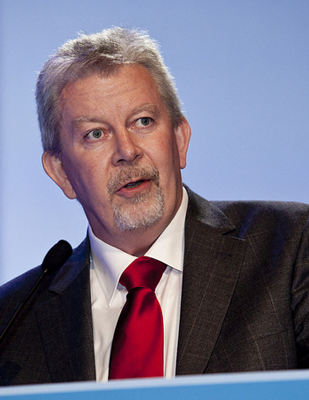 Anders Berntell. Executive Director, Stockholm International Water Institute (SIWI)
Anders Berntell. Executive Director, Stockholm International Water Institute (SIWI)
Mr Anders Berntell is one of the leading voices in the water sector today. In 2002, he joined SIWI as Executive Director where he is responsible for overall development and direction of SIWI's activities. This includes administration of the globally reputed World Water Week, SIWI's Knowledge Services and SIWI water prize activities. Under his leadership, SIWI has undergone tremendous growth and transformation to become a world renowned and leading-edge future-oriented water policy institute. SIWIs work in applied research, advisory services and capacity building continues to grow in international recognition. Mr Berntell, a biologist by training, has worked within the field of water, environment and development for 30 years. His contact network in Sweden and abroad is therefore extensive. Prior to joining SIWI, he was Director of Water at the Swedish Ministry of the Environment for seven years and held overall responsibility for all national and international water issues. Internationally, Mr Berntell worked with overall policy issues within the water area and cooperated with environment ministries and water departments in different countries, with donors and development banks, the European Union and with organizations both inside and outside the United Nations system. Mr Berntell has a background in the Swedish Environmental administration, starting at the County Administrative Level, thereafter being responsible for water related environmental monitoring and evaluation for the Swedish Environmental Protection Agency.
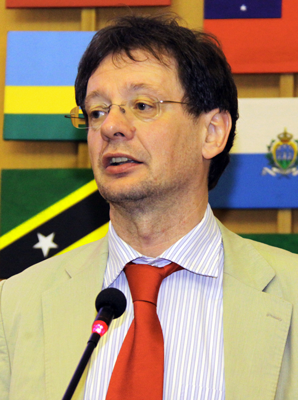 Alexander Müller. Assistant Director-General for Natural Resources, Food and Agriculture Organization (FAO)
Alexander Müller. Assistant Director-General for Natural Resources, Food and Agriculture Organization (FAO)
Alexander Muller is the Assistant Director-General of the Natural Resources Management and Environment Department of the Food and Agriculture Organization of the United Nations. From 2001 to 2005, he was State Secretary of the German Federal Ministry of Consumer Protection, Food and Agriculture. From 1995 to 2001, he was a member of German parliament and chaired the Caucus of the Green Party. He was also a member of the Committee of Environmental Affairs, the Finance Committee and the Committee for New Media. From 1992 to 1995, he was the State Secretary for the Hessian Ministry of Youth, Family and Health Affairs in Wiesbaden, Germany. Alexander holds a master of social sciences focusing on sociology and political sciences from the Philipps Universitat, Marburg, Germany.
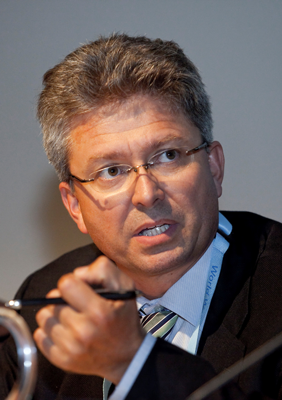 Joakim Harlin. United Nations Development Programme (UNDP)
Joakim Harlin. United Nations Development Programme (UNDP)
Dr Joakim Harlin is a water resources and international development professional. Formerly employed by the Royal Institute of Technology in Stockholm, the Swedish Meteorological and Hydrological Institute and the consulting firm SWECO AB, he has considerable experience of research & development, consultancy and business development in water management in developing countries. He has managed, designed, and implemented projects in Europe, Africa, Asia and Latin America. A citizen of Sweden, Joakim was raised in Zimbabwe. He received his Docent, Ph.D. and M.Sc. degrees in engineering hydrology from the Royal Institute of Technology in Stockholm. He returned to Zimbabwe to lead a nationwide project supporting water sector reforms, and strengthening the government's hydrological capacity during 1997-2000. He joined the United Nations Development Programme (UNDP) in New York in 2004 as Senior Water Resources Advisor within the Bureau for Development Policy. His role is to coordinate and develop UNDP's Water and Ocean Governance Programme worldwide. Joakim chairs the UNDP's global network to strengthen capacity building for sustainable development of water resources: Cap-Net. He represents UNDP in the Global Water Partnership steering committee and in UN-Water. He is UNDP's focal point for the Water Governance Facility at the Stockholm International Water Institute.
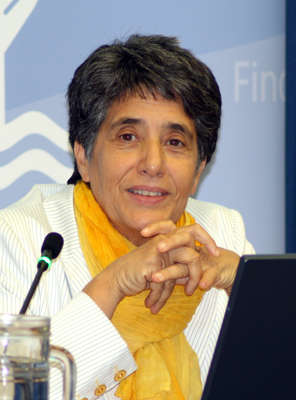 Josefina Maestu. Coordinator, UN-Water Decade Programme on Advocacy and Communication (UNW-DPAC)
Josefina Maestu. Coordinator, UN-Water Decade Programme on Advocacy and Communication (UNW-DPAC)
Josefina Maestu is the Director of the programme since September 2009. Prior to her appointment, Ms. Maestu served as senior advisor to the Ministry of Environment, Rural and Marine Affairs. With an academic background in economics and planning, she has an extended professional career in the field of water, international relations, in national civil servant positions and international advisor consultancies. She has coordinated the preparation of the economic analysis of River Basin Management Plans for implementation of the Water Framework Directive and the economic evaluation of infrastructure investment projects and programmes and European Funded Programmes. Prior to this, she was Secretary-General of the Mediterranean Water Network for several years, and has been technical adviser to the European Commission and UN system organizations including the World Bank.
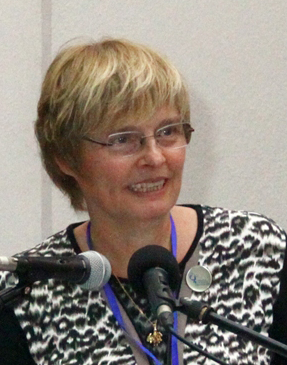 Alice Bouman-Dentener. President, Women for Water Partnership
Alice Bouman-Dentener. President, Women for Water Partnership
Alice Bouman-Dentener holds a degree in Natural Science from Utrecht University, the Netherlands. She worked as a researcher and university lecturer on ethology and socio-ecology in Peru and started working on sustainable development issues in 1986. In 1998 she addressed the United Nations General Assembly on women's role in Integrated Water Resources Management and its link to sustainable development. Her involvement with water and gender dates back to World Water Forum 2 in 2000 in the Hague, where she was responsible for organizing the Major Group Women's input. In 1992, as Women's Representative in the Netherlands' Delegation to the World Summit for Sustainable Development in Johannesburg, she lay the foundation for the Women for Water Partnership. Currently, WfWP is a worldwide network consisting of 24 renowned women's organizations that work on the water & sanitation, sustainable development, poverty and gender nexus. The network has subsidiaries in 86 countries, of which 58 are DAC countries. Alice Bouman-Dentener is the Secretary General of the Netherlands Council of Women, member of the steering committee of the Global Water Partnership and member of the Advisory Board of Gender Concerns International.
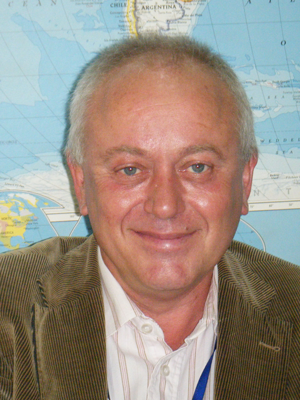 Bert Diphoorn. Director, Human Settlements Financing Division, UN-HABITAT
Bert Diphoorn. Director, Human Settlements Financing Division, UN-HABITAT
Mr. Diphoorn has over twenty years of experience in operational management and the provision of technical assistance and policy advice in the area of water and sanitation. He is currently the Director of the Human Settlements Financing Division and Chief of the Water, Sanitation and Infrastructure Branch at UN-HABITAT in Nairobi, Kenya. He leads the Human Settlements Financing Division in formulating its periodic work programmes and implementation strategy to increase pro-poor investment in slum upgrading, water and sanitation, housing and associated infrastructure including transport and energy, by attracting domestic capital and international support through innovative collaborations with international, regional and national financial institutions. Prior to his work at UN-HABITAT, Mr. Diphoorn was seconded in October 2003 by the Dutch Government to the African Development Bank (AfDB) as Senior Adviser to the Vice President, Policy, Planning and Research. At the Bank, he was tasked with the establishment of the African Water Facility, implementation of the AfDB/Netherlands water partnership program, and coordination of the African input in the Fourth World Water Forum. Mr. Diphoorn has also worked as Head of the Water Support Unit at the Ministry of Foreign Affairs, responsible for the overall approaches to water resources within Netherlands Overseas Development Assistance. He was responsible for the organisation of the Second World Water Forum in the Hague (2000) and the Water Dome during the World Summit on Sustainable Development in Johannesburg.
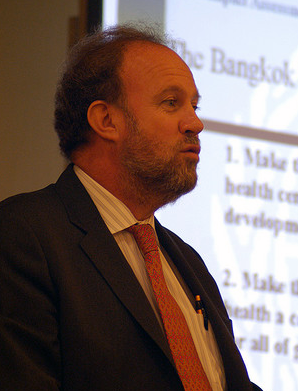 Robert Bos. Coordinator, Water, Sanitation, Hygiene and Health, World Health Organization (WHO)
Robert Bos. Coordinator, Water, Sanitation, Hygiene and Health, World Health Organization (WHO)
Robert Bos is the Coordinator of Water, Sanitation, Hygiene and Health at the World Health Organization where he leads WHO's efforts in normative water quality work and in monitoring access to drinking-water and sanitation. He has served as a Public Health Biologist with WHO for nearly 30 years, during which he served as an Executive Secretary of the joint WHO/FAO/UNEP Panel of Experts on Environmental Management for Vector Control. He has promoted the development of health impact assessments, managed research on environmental management and contributed to the development of norms and standards for safe use of wastewater in agriculture. Following the Stockholm Convention, Robert promoted alternatives to persistent organic pesticides in public health and agriculture. He holds M.Sc.'s from the University of Amsterdam in medical biology and in basic and clinical immunology.
 Peter Bjoernsen. Director, Centre for Water and Environment, United Nations Environment Programme (UNEP-DHI)
Peter Bjoernsen. Director, Centre for Water and Environment, United Nations Environment Programme (UNEP-DHI)
Peter K. Bjornsen is Director of the UNEP-DHI Centre on Water and Environment, located at DHI Institute for Water, Environment and Health in Denmark. The Centre provides expertise to support UNEP's Water Policy and Strategy focusing on global assessments, integrated water resources management and coordination among organisations working in the field of water resources and the environment. Dr. Bjornsen holds a Ph.D. degree in aquatic ecology from University of Copenhagen, where he also held positions as Research Assistant, Assistant Professor and Associate Professor. He contributed to the understanding of the impacts of climate change and nutrient over-enrichment on aquatic ecosystems. The results are recorded in more than 30 scientific papers published in international scientific journals and quoted in more than 2000 other scientific publications. Dr. Bjornsen has broad expertise in environmental assessment, State of Environment reporting, environmental monitoring and public environmental management in developed as well as developing countries, covering natural resources management, aquatic ecosystems, environmental health, and climate change issues. He has operational experience from multilateral and bilateral donor organisations (UN Agencies, World Bank, Danida, and EU), and working experience from more than 30 countries in Europe, Africa, Middle East and Asia.
 Ania Grobicki. Executive Secretary, Global Water Partnership (GWP)
Ania Grobicki. Executive Secretary, Global Water Partnership (GWP)
Dr Ania Grobicki is the Executive Secretary of the Global Water Partnership (GWP), based in Stockholm, Sweden. A global network initiated in 1996, GWP now supports national policy processes in up to 80 countries worldwide through multi-stakeholder platforms for dialogue (the Country Water Partnerships). Regional policy processes are also supported through GWP´s Regional Water Partnerships established in 13 regions. Dr Grobicki is an economist and a chemical engineer, with a PhD in Biotechnology from Imperial College, London, and she is an expert in wastewater, industrial effluent and hazardous waste treatment and management. In the early 1990s she led the ANC´s Science and Technology Group, drafting democratic policy options (including water policy) in South Africa. Her previous positions include being the first Co-ordinator of the CGIAR´s Challenge Programme on Water and Food; and Head of Secretariat for a multi-stakeholder partnership based in WHO, supporting research for health in developing countries. Having both technical and policy expertise in the water field, she took up her current position with GWP in 2009.
>> Final report
[ - 524 KB]
- 524 KB]
>> Session brochure
[ - 1.91 MB]
- 1.91 MB]
>> Session flyer
[ - 421 KB]
- 421 KB]
>> Presentation from Zafar Adeel
[ - 1.75 MB]
- 1.75 MB]
>> Presentation from Josefina Maestu
[ - 755 KB]
- 755 KB]
>> Water on the Road to Rio+20 [ - 426 KB]
- 426 KB]
>> Water in the Green Economy in practice
[ - 562.5 KB]
- 562.5 KB]
>> Water toolbox: A contribution to Rio+20
[ - 639.7 KB]
- 639.7 KB]
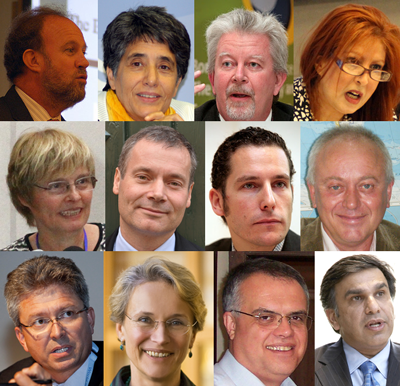
Copyright | Terms of use | Privacy notice | Site Index | Fraud alert | Help




